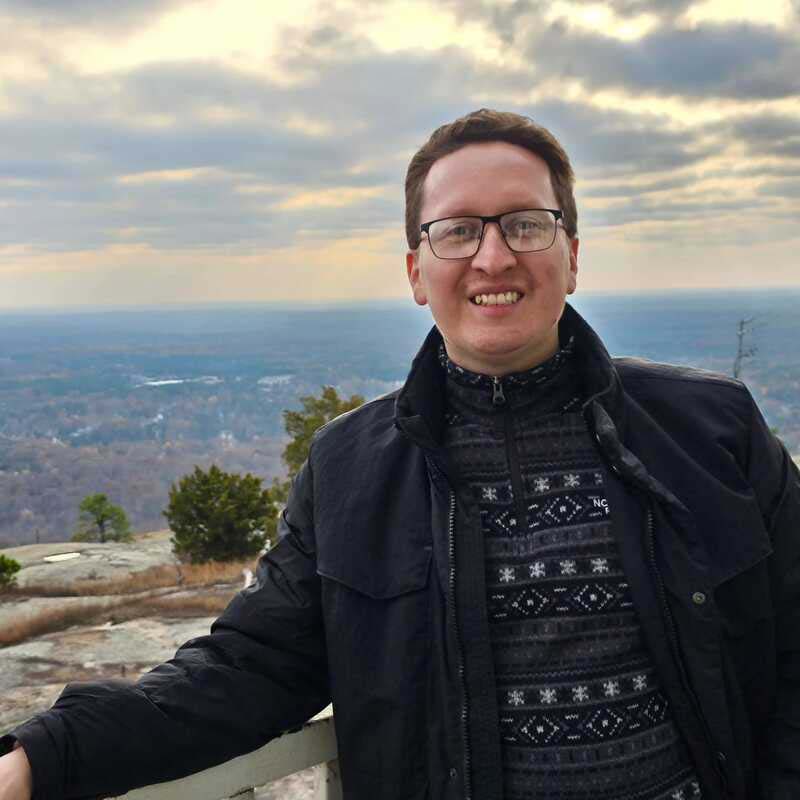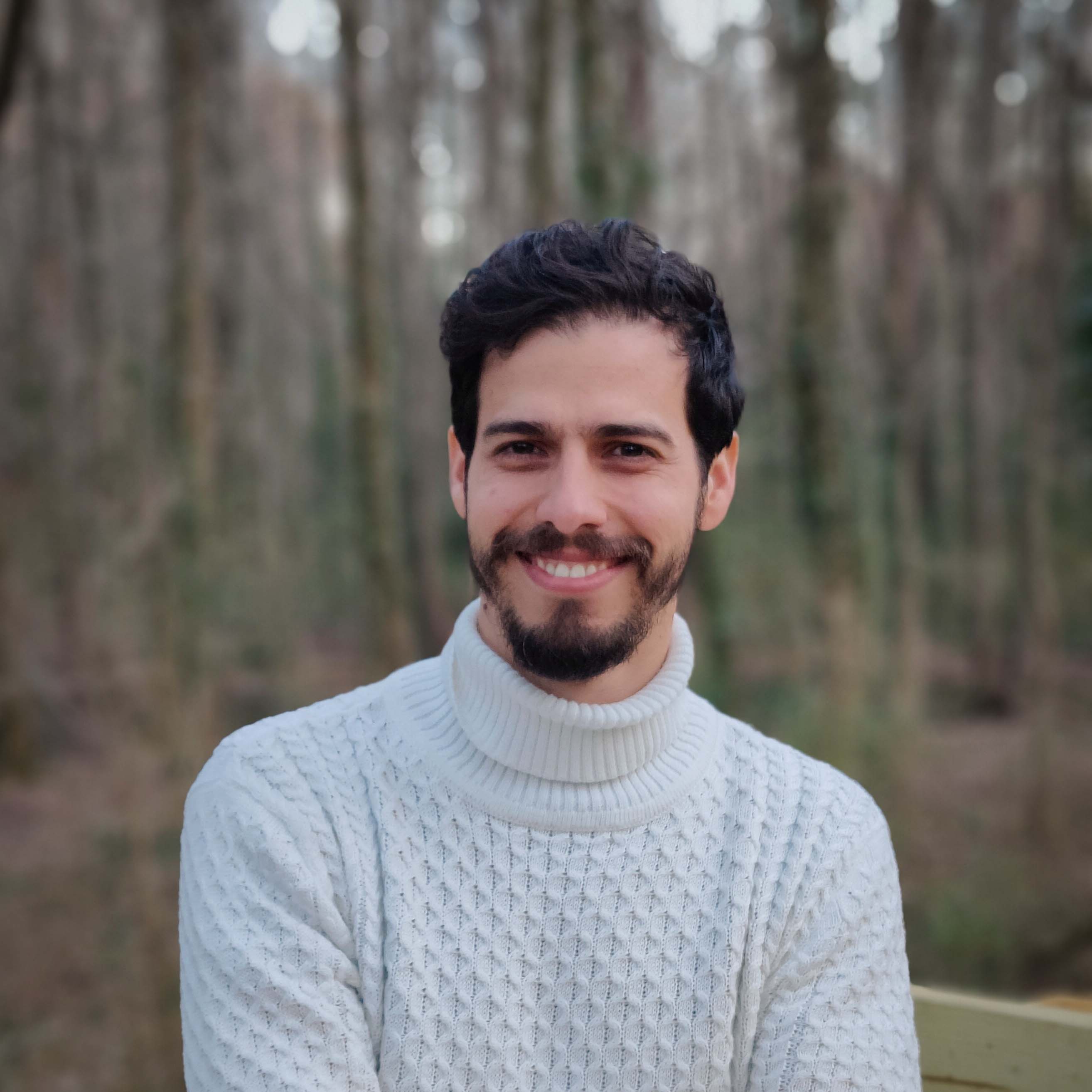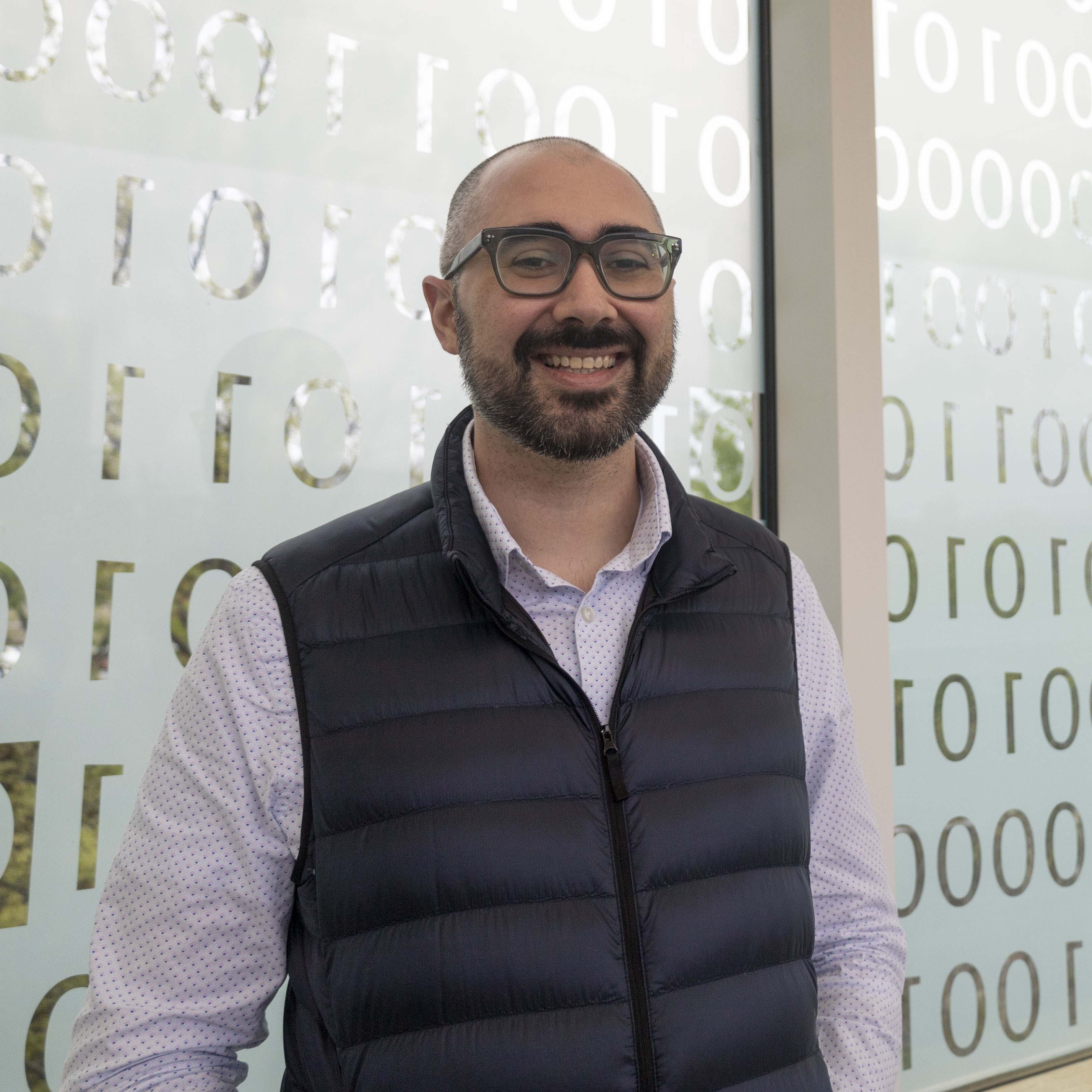
Latin American Educators Guide the Next Generation of Computing Professionals
As we celebrate Hispanic Heritage Month, it’s important to recognize the diverse contributions of the Latin American community within the School of Computing Instruction (SCI). Faculty members with Latin American roots bring unique perspectives and experiences that enrich curriculum and student life.
SCI Lecturers Pedro Guillermo Feijóo García, Gerandy Brito, and Rodrigo Borela share a passion for CS that has also inspired them to create a supportive environment for underrepresented students in the field.
By fostering involvement in supportive student organizations, promoting broader participation, and other work outside the classroom, they are working collectively to ensure the next generation of Latin American professionals thrive in tech.
Guillermo Feijóo García’s journey into computer science (CS) exemplifies the power of diverse pathways into the field. His transition from mechanical engineering began during his second semester when he took his first programming class. Initially, he believed computer scientists worked in isolation, but he quickly discovered the interactive and collaborative nature of the discipline. This realization led him to view CS as the most social discipline in STEM, ultimately fueling his passion for education and mentorship as a full-time CS educator and researcher.

What challenges did you face as a Latino in computing, and how did you overcome them? Were there mentors who helped you along the way?
Belonging and representation were the biggest challenges. In the U.S., Latin American faculty and students are scarce in computing, and during my Ph.D., I had to build a support system outside of my department. It made me question whether I'd make it in U.S. academia. When you don't see anyone similar to you in jobs you are preparing for, it makes you question every step of the process.
My Nona (Abuela) Alix, an educator from Colombia, is the reason why I decided to become an educator. I also had great mentors while becoming a professional and scholar, including Dr. Daniel Suarez and Dr. Fernando De la Rosa during my undergraduate and graduate education. Dr. Maria Catalina Ramirez introduced me to humanitarian engineering research and the social aspects of computing. Prof. Francisco Rueda was like a father to me during my undergraduate years in Colombia, and Dr. Benjamin Lok, Dr. Eric Ragan, and Dr. Alexandre Gomes de Siqueira were also great mentors during my doctoral process.
What advice would you give to underrepresented students pursuing computing degrees?
For Latin American students, I suggest engaging in The Society of Latinos in Computing (SOLC) and Society of Hispanic Professional Engineers (SHPE). They will find great communities and opportunities tailored for them. Also, reach out to your Latin American professors for guidance or support!
What resources or suggestions do you have for students seeking support, community, or mentors at Georgia Tech or in the industry?
SOLC, SHPE, and the Hispanics in Computing listserv, which offers valuable opportunities.
CS has a scarcity of Latin Americans, but other majors are different. For instance, one dear Brazilian student told me he was taking classes on the history of Latin music! It's brilliant to find other spaces to connect with your roots and meet people with similar interests.
SOLC and SHPE are great ways to make friends and culturally connect with others.
How do you see the role of diversity in shaping the future of computing, especially with the advances in AI and technology?
It already is. Research and discussions on broadening participation in computing are hot nowadays. It is not an exception for AI. More efforts are being allocated towards understanding the interaction between humans and AI agents and the social psychology behind user expectations. CS is becoming more social-oriented, especially considering how current advancements in technology are leading to computers becoming more ubiquitous in our society.
Similarly, Brito began his academic path in a different field, initially focusing on mathematics before discovering the world of CS. He says CS was a natural progression from his strong foundation in mathematics, where he explored algorithms. This progression allowed him to develop his passion for computing further.

What challenges did you face as a Latino or as someone from a group that is often underrepresented in computing?
There are many challenges, some more subtle than others. On the visible side, there is little representation of the Latin American community in math and CS, despite being around 20% of the U.S. population. During my Ph.D. program, there were only two to three Latin American students among over 100 students.
There are also cultural differences, which impacts our everyday lives, from the way we conduct personal relations to the sense of humor.
Are there mentors or role models who played a key role in your success?
I consider myself lucky that my entire life I have been surrounded by amazing human beings. At each time and place, there were new people I looked at as role models. Some I call my friends to this day. For me, that local inspiration was key.
Do you have any suggestions on how students can connect with mentors or build supportive networks during their time at Georgia Tech?
There’s a recently new student organization for Latin-American students in CS with great ideas on how to reach the community. The Latino members of SCI are discussing how to contribute more and encourage our community to consider careers in tech. We want to educate the community and connect with talented individuals back in our home countries.
How do you see the role of diversity in shaping the future of computing, especially with the advances in AI and technology?
To build a more balanced world where development and opportunities exist everywhere, we must diversify. Technology will play a key role in our future across all aspects of human experience. Thus, we must educate a diverse tech generation that can reconnect organically worldwide.
Like Guillermo Feijóo García and Brito, Borela brings a unique perspective to the field. Borela's path to CS began with his bachelor's degree in civil engineering, where he recognized the need for data processing in addressing complex problems. As he delved deeper into computing during his graduate studies, he discovered his passion for the field and its interdisciplinary nature.

What challenges did you face as a Latino or as someone from a group that is often underrepresented in computing?
As a result of my identity, I don't know! At Georgia Tech, I have never felt that being Latino posed challenges. I’ve always felt respected in my professional networks. If biases existed, I wouldn't know if they affected opportunities.
Are there mentors or role models who played a key role in your success?
Yes, my advisors and collaborators have taught me valuable lessons, whether directly or by inspiring me to approach the world differently.
How important is mentorship to improving diversity within the field of CS?
Mentorship is invaluable for improving diversity in CS, but it's limited. Many barriers preventing underrepresented groups from participating in computing are systemic. We must address these challenges to broaden participation by providing equitable opportunities and reevaluating policies that unintentionally gatekeep various groups.
What advice would you give to underrepresented students pursuing computing degrees?
We are all multifaceted individuals shaped by diverse experiences and identities. It's unlikely to find one role model who encapsulates everything you want to learn. Therefore, building a broad network is important to receive advice, learn, and grow together.
Also, don't wait until you see yourself represented in a field or position; often, those gaps in representation are shaped just like you, and it's up to you to step into them and fill them with your unique perspectives and all the power that comes with that.
What resources or suggestions do you have for students seeking support, community, and mentors at Georgia Tech or in the industry?
The LGBTQIA Resource Center at Georgia Tech is excellent for finding community and educating yourself on the human experience's plurality.
Additionally, many hesitate to approach others due to fear of judgment or rejection, which can cause them to miss valuable opportunities to connect and learn. Remember the saying, "you miss 100% of the shots you don't take." Knock on doors, share your aspirations, or message and reach out to others.
The world is connected in strange and fascinating ways and it's difficult to predict how you are going to come across an opportunity. Many of the ones I had in my life came through serendipity.
The experiences of Feijóo García, Brito, and Borela enrich the academic environment at SCI and inspire the next generation of diverse computing professionals. Their journeys underscore the importance of mentorship, community, and representation in shaping a more inclusive future in technology.
More information about Hispanic Heritage Month celebrations at Georgia Tech can be found here. More on student clubs and organizations can be found here.
As computing revolutionizes research in science and engineering disciplines and drives industry innovation, Georgia Tech leads the way, ranking as a top-tier destination for undergraduate computer science (CS) education. Read more about the college's commitment:… https://t.co/9e5udNwuuD pic.twitter.com/MZ6KU9gpF3
— Georgia Tech Computing (@gtcomputing) September 24, 2024


